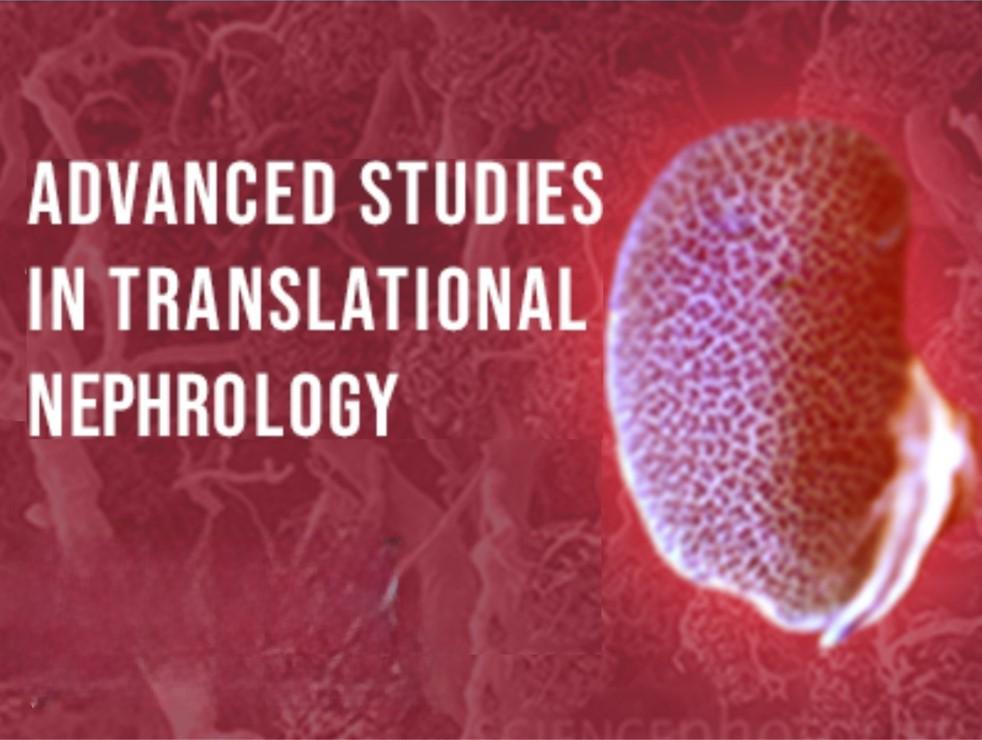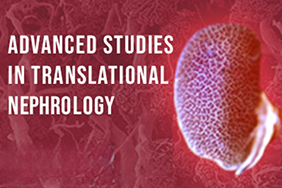DAS in Translational Nephrology
Medical Faculty of the University of Zurich (UZH) and University Clinic of Nephrology and Hypertension at the Inselspital Bern (Unibe). The Zurich Kidney Center (ZKC) is responsible at the level of the UZH.
The programme provides to graduates in medicine and life sciences relevant knowledge and insights into the basics of nephrology and kidney pathophysiology.
Participants will acquire and strengthen basic knowledge in pathophysiology of kidney disease by studying annotated online resources, clinical cases and key articles and test their progress with online quizzes and evaluations as well as face-to-face sessions with module leaders and tutors.
Thereby participants learn how to read critically articles and extract the most relevant information. Furthermore, they learn how mechanistic understanding of pathophysiology is derived from the investigation of clinical cases, studies and experimental models.

| Degree | Diploma of Advanced Studies UZH Unibe in Translational Nephrology (DAS TN UZH Unibe) |
|---|---|
| Start | 2025/03/21 |
| Length | 3 years |
| Scope | 30 ECTS |
| Cycle | Every 2 years (can be started with any module: March, June, November). |
| Flexible entry possible | Yes |
| Single module visitable | Yes |
| Place | E-learning and for each module two half-day hybrid face-to-face meetings (Bern or online). |
| Language | English |
| Admission | Master's degree or equivalent in medicine or life sciences required. |
| Registration until | 2025/02/28 |
| Cost | CHF 7'200 |
| Special Offer | Reduced fee for academics and physicians: CHF 4'000. |
| Organising institutions | Medical Faculty of the University of Zurich (UZH) and University Clinic of Nephrology and Hypertension at the Inselspital Bern (Unibe). The Zurich Kidney Center (ZKC) is responsible at the level of the UZH. |
| Partner | Health Sciences e-Training Foundation |

|
|
About the program
The Continuing Education Program in Translational Nephrology provides a comprehensive overview of the fundamentals of nephrology by studying the physiological and pathophysiological basis of kidney function in health and disease. It is designed for national and international graduates with a Master's degree in medicine or life sciences who wish to deepen their knowledge and understanding of basic, translational and clinical renal pathophysiology and research.
At the core of the CAS/DAS in Translational Nephrology are 6 blended e-learning modules developed by the Health Sciences eTraining Foundation (HSeT) in collaboration with several specialists from the former NCCR Kidney.CH (2010-2022). These modules include e-learning with annotated online resources, clinical cases and key articles illustrating the translational aspects, hybrid on-site and online face-to-face sessions with module leaders and tutors that include presentations, and assessments.
To obtain a DAS in Translational Nephrology, participants must successfully complete the 6 blended e-learning modules.
In addition, they must obtain 9 ECTS points for individually agreed activities, such as the active attendance (e.g., with poster or oral presentation) of conferences, congresses, retreats or relevant workshops (generally 2 ECTS points per event).
Finally, the successful presentation of a diploma thesis is required. This thesis normally consists in the publication of an original article or a systematic review or, upon agreement, of an extensive review in a peer-reviewed journal, normally as first, or last author (generally 8 ECTS-points). Alternatively, it may consist in the completion of a teaching project (setup of a new Case Based Learning module) (3 ECTS-points).
The program can be started with any of the 6 blended e-learning modules (March, June, November).
Target audience
Graduates in medicine or life sciences interested in strengthening their knowledge and understanding in renal pathophysiology and research.
Language and location
The course language is English. The University of Bern is the site for all courses with presence (kick-off and return face-to-face sessions and audits). Please check the information for modules and sessions here.
Modules
The six blended modules of approx. 14 weeks each cover the major topics in nephrology:
Module 1: Salt, Water and Hypertension
- Basics on renal Na+, K+, Cl- and water handling and their hormonal regulation
- Impact of dietary Na+ and K+ intake on blood pressure and the aldosterone paradox
- Cellular and molecular mechanism of arterial hypertension and disturbed water balance
Module 2: Acid-base Homeostasis
- Tubular mechanism of renal handling of acids and bases
- Control of acid-base homeostasis and the respective role of the kidney, the lung and other organs
- Mechanism of renal tubular acidosis and other kidney-related disturbances in acid-base balance
Module 3: Calcium and Phosphate
- Physiology and pathophysiology of renal tubular handling of divalent cations and the involved hormonal control systems
- Pathogenesis of vascular and urinary calcifications
Module 4: Oxygen Signaling and Cancer
- General mechanism of cellular oxygen sensing
- Physiology and pathophysiology of renal erythropoietin production
- VHL disease and clear cell renal cell carcinoma
Module 5: Metabolism and Kidney Function
- Dietary proteins and kidney function: amino acid transport, kidney growth, nitrogen disposal and water handling
- GFR as measure of kidney function, role of age and relation to kidney volume
Module 6: Inflammation and Immunology
- Inflammation and progression of chronic kidney disease
- Direct and indirect immune-mediated renal diseases
- Immune system in kidney transplantation
Each module begins with a half-day afternoon kick-off session consisting of three presentations by tutors and ends with a return session held the morning before the afternoon kick-off session of the next module. Both sessions are delivered in a hybrid face-to-face mode in Bern and online mode. The ̴14 weeks in between are structured in 4 steps: e-learning from online resources including figures and animations, solving a main individual online task (case-based or article-based learning including quizzes), online learning from each other's tasks and formulating challenge questions, and finally preparing individual short presentations and common group answers to challenge questions for the return session. Quizzes, final exam and presentations will be graded.
Organising institution and faculty
The Course of studies is offered by the Medical Faculty of the University of Zurich (UZH) and University Clinic for Nephrology and Hypertension of the Inselspital Bern (Unibe). The Zurich Kidney Center (ZKC) is responsible at the UZH level.
The academic module leaders for the current cycle are:
- Prof. Johannes Loffing, UZH
- Prof. Carsten A. Wagner, UZH
- Prof. Olivier Bonny, UniFr
- Prof. Roland H. Wenger, UZH
- Prof. em. François Verrey, UZH
- Prof. Uyen Huynh-Do, UniBe
- Prof. Harald Seeger, UZH.
They are each supported by 3-5 additional academic tutors.
Admission
Master's degree or equivalent in medicine or life sciences required. Exceptions to the admission requirements may be approved by the programme committee «sur dossier».
The courses are limited to a maximum of 24 persons. Permission to participate in the course is decided by the program administration upon application by the course management. There is no automatic entitlement to admission.
Application and tuition fees
Registration is possible up to 2 weeks prior to the start of each module in March, June and December of each year. See program and schedule on the course website: https://www.nephrologie.unibe.ch/
The DAS study programme costs CHF 7’200: CHF 5'400 for 6 modules, and CHF 1'800' for the supervision of individually agreed activities, diploma thesis, and the certificate.
Reduced fee for academics and physicians CHF 4'000: CHF 3’000 for 6 modules, and CHF 1'000 for the supervision of individually agreed activities, diploma thesis, and the certificate.
Individual modules may be booked separately: CHF 900. Reduced fee for academics and physicians: CHF 500.

Contact

Prof. em. Dr. med. François Verrey

Helen Girard
Associate Courses
CAS in Translational Nephrology
| Degree | CAS |
|---|---|
| Start | 2025/03/21 |
| Language | Englisch |
| Cost | CHF 5'400 |
The CAS consists of five blended e-learning modules over 14 weeks, including two half-day hybrid face-to-face meetings. Topics are further explored through self-directed e-learning using annotated online resources, clinical cases and key articles. The course includes presentations and assessments.

